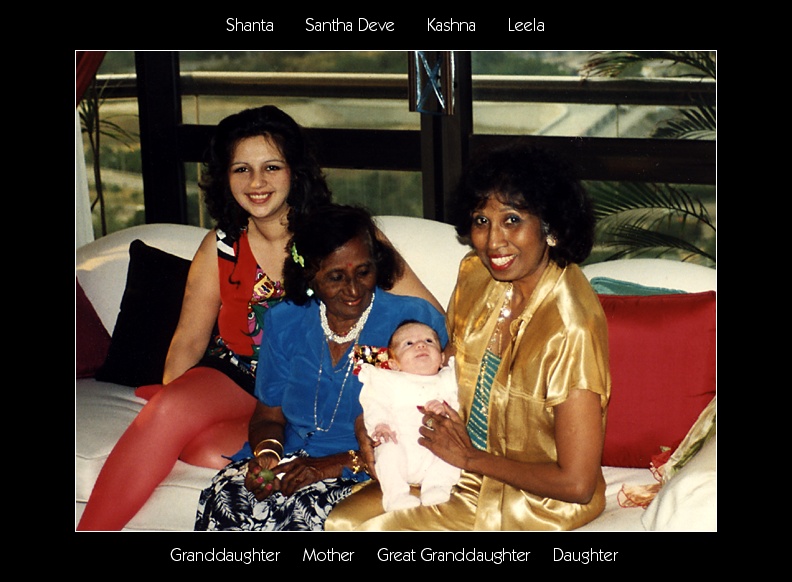
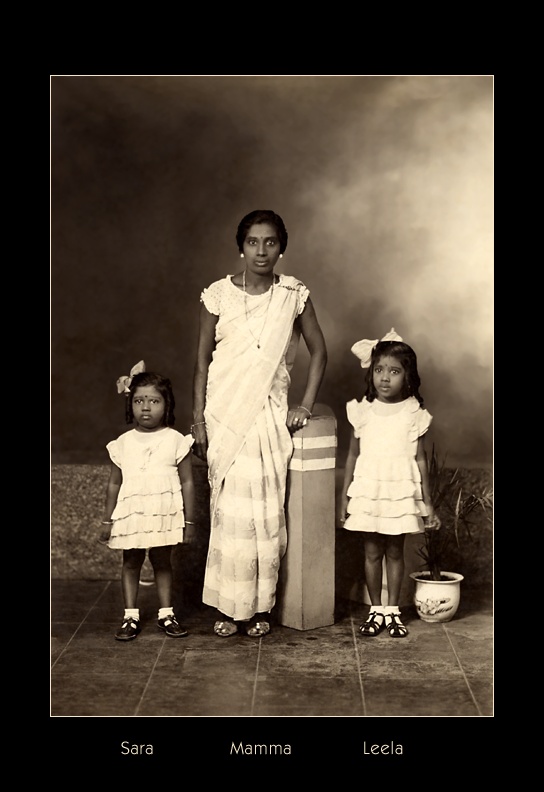
Mamma was an accomplished lady. Not only did she bring up six children, she was a staff nurse at a hospital for a time and then a visiting nutritionist during the Japanese occupation of Penang in World War II. She spoke four languages and could read and write two. |
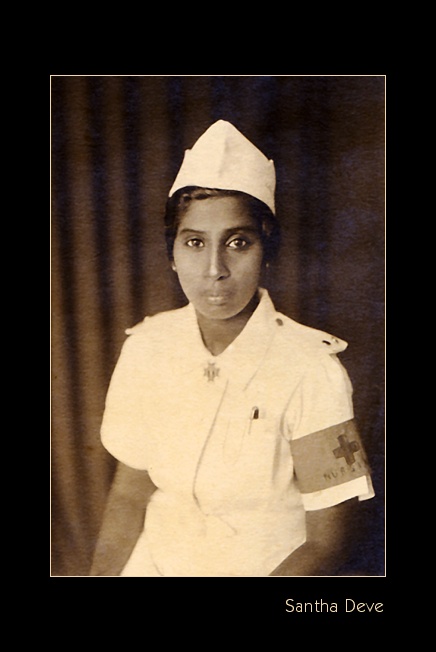
|
Mamma spent the last seven months of her 82 years in hospitals and rehabilitation centres. Being bedridden takes away every shred of a person's dignity. Mamma had tubes in and out of her at various times. She had needles stuck in her, sometimes left in her hand or leg or foot for days on end, to be reconnected again. She had a tube through her nose that went into her stomach. In the end a machine pumped formula food at 4 drops every 6 seconds to keep her alive. Finally she was not even allowed the use of her hands. She had to wear stiff mitts to prevent her from removing her feeding tube -- it was a painful process to reinsert the tube. She suffered through it all silently. Her gratitude overwhelmed the doctors and nurses who attended her. She was kind and considerate to the very end. She was aware of everything going on; during her waking hours she prayed for release. The only thing she ever asked was, "Why?" -- a question for the world and not for us. On her last day when we arrived at the hospital she was praying. She had recently reached a stage where she had totally withdrawn from everything and seldom spoke or opened her eyes. But on the evening she passed away Don and I were with her. She had a lovely smile for Don, her first in a long while, and when I held her close and whispered, “Mama, get better soon and come home to us,” she said, "I am well". In the last two years she had difficulty hearing but towards the end she could hear everything we said. It was also the first time she kept her eyes open throughout our visit. She looked at us all the while. All her senses had become keen. |
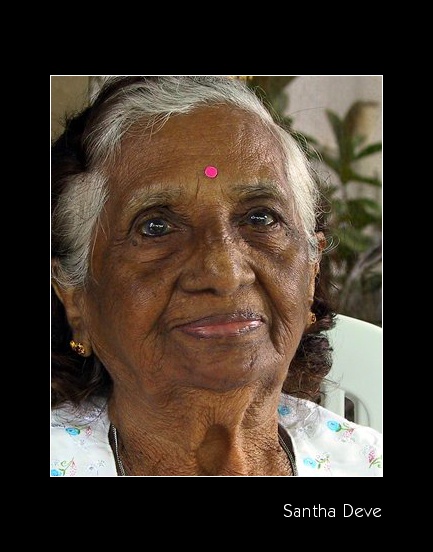
|
We were sitting close to her, Don was massaging her feet and I was holding her. She had a little difficulty breathing, we turned her on her side a little and her breathing became comfortable and then it became quieter and quieter and stopped. It was peaceful. We stayed with her as long as possible -- enough time to represent all the family and friends. The SARS epidemic was particularly bad for us because at times we were not allowed to visit her and at other times were allowed only a very short visit. SARS restrictions were only lifted on the day Mama passed away. We were lucky we were allowed to stay to till 7.30pm for normally we got thrown out at 7. Thanks to Mr. Vernon Ram’s help with the right contacts we were able to give Mama the right send-off. My younger sister Sara prepared Mamma’s body for cremation. Mama was a good-looking lady even in death and she was even more resplendent when my sister covered her in her best shawl for the ceremony. We had a beautiful ceremony with devotional music and prayers conducted by a pujari, a Hindu priest, Maharaj Sharma. Mr. Tolaram Babani arranged the whole service and brought representatives from the temple. Don stood in as the son for the last rites. At Cape Collinson Crematorium we had more prayers. Only members of our small family in Hong Kong were present -- Allan, Don, Sara and me. The flowers that were brought personally by the family were cremated with Mamma. |
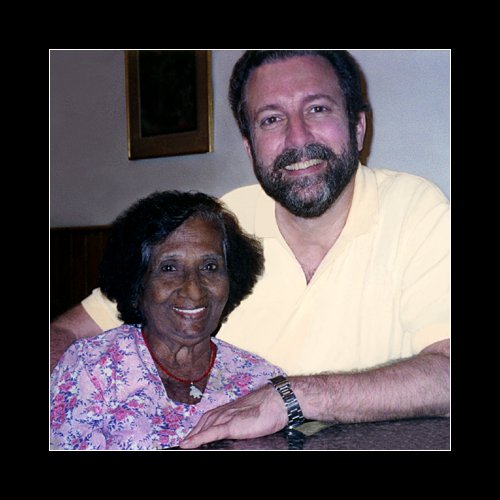
|
On the next day, Wednesday, Don and I, with the pujari, collected Mama's ashes. There was yet another ceremony. I was surprised to see so many nails in Mamma’s ashes. There was also the big piece of metal that was inserted in Mamma’s hip that she broke in a recent fall. We went high-tech and removed the nails and piece of metal with a heavy-duty magnet. Mama would have been thoroughly amused by this. “What a funny thing,” she would have said. Mama’s ashes are now in a box wrapped up in a white cloth in the Kowloon Hindu Temple. They will stay there until Don and I collect them in a couple of month's time. We plan to go to Penang to scatter her ashes in the sea, at the same spot where my father's ashes were scattered. She hated leaving Penang and always wanted to go back. We are both well and have coped well too. All our meditation and forcing ourselves to take things easy has worked very much in our favour. What worked particularly well for me is the reading of a book which is almost like a bible -- The Tibetan Book of Living and Dying by Sogyal Rinpoche. In it, the author, a Tibetan monk, focuses on how to understand the true meaning of life, how to accept death, and how to help the dying and the dead. Death is a natural part of life he says. I have had this book since 1994 but had the best chance to read it when I spent long hours in the hospital sitting by Mama's bedside. |
